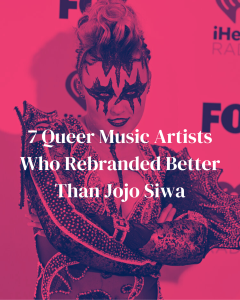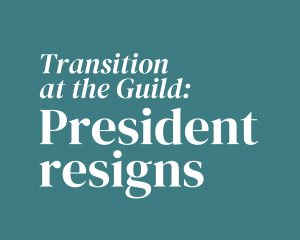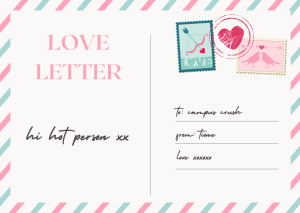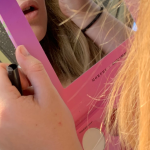
You haven’t experienced capitalism in its pure, distilled form until you have worked in a liquor store. Nothing shouts ‘consumerism!’ like seeing people press their ruddy faces to the glass doors of a Dan Murphy’s before opening. It has become socially acceptable to be a shameless alcoholic.
In 2020, with a few years of messy, dissatisfying bartending experience up my sleeve, I decided I wanted to try something a little slower. A casual position at Dan Murphy’s presented itself, and my poor alcohol-industry-traumatised mind thought that it would be perfect. It wasn’t, of course.
On my first day they told me that Dan Murphy’s is the second most profitable business in Australia. The first is Woolworths, owned by the same company as Dan’s. It didn’t surprise me that Australians consume almost as much alcohol as food. They also showed me where the emergency button under the counter was, as every other alcohol store in our town had been mugged before. It was only a matter of time until it happened here, my manager said. That was probably the first red flag.
Like any job, it started fine: it was almost fun. I knew my products, and my job was really just talking to people. We didn’t have a uniform. The rest of the staff were nice enough. It’s an alcohol shop in Australia. In theory, it sounds like the most laid-back job in the world, right? But it didn’t take long for me to realise that liquor stores are not like other stores. Something about crossing the store’s threshold would render both customers and staff completely mindless. The effects included hysteria, memory loss, and a general lack of human decency and respect.
In my first week, someone paid for a bottle of wine by dropping a handful of coins and a small pile of brown crumbs into my hand. I had to physically restrain myself from gagging. I also quickly learned of the constant sexual harassment from older men. They were usually in their 50’s or 60’s. I was 20. My asking what their phone numbers were for the loyalty program would elicit lewd comments from them about how much I wanted them. They would toss greasy compliments my way, which weren’t really compliments at all.
But it wasn’t all harassment! Much like a bartender in bar, someone working the cashier at a grog shop is someone you can tell your woes to without judgement (I definitely judged). It was a daily occurrence, hearing a man mention how much he hated his wife or how useless she was. Some even alluded to going home and shooting their wives, themselves, or both. Or just drinking themselves to death. A lot of them were drunk already and spent the whole interaction just trying to say something legible to me.
Then there was the dreaded response to ‘Would you like your receipt?’
‘Well, I can’t claim it on tax, now, can I?’. Without fail, this was the response of every single white man over fifty. I would hear this joke ten times a day, every comedian customer thinking they were dazzling me with their wit. I would pass them their receipt wordlessly and look away.
That wasn’t the only case of men pissing me off. It seemed that Dan Murphy’s wasn’t just a breeding ground for the horrors of consumerism, but misogyny as well. After a few months, we had some new hires, among them an eighteen-year-old boy. I don’t know what it was about the job that fed his ego. Maybe it was the fact that his job was just easier than mine. Men didn’t come in every day and make him feel gross and uncomfortable in his own body. Maybe it was because men always get praise for doing a ‘woman’s job’. He was the only guy on registers, the rest out the back, unloading pallets of alcohol. I will only mention two instances of his stupidity because that’s all I can brave myself to remember. One day he decided to take it upon himself to lecture me about sexism in the workplace.
‘You probably don’t know this, but young women get harassed by old men a lot,’ he said.
I was shocked. I had literally just been asked about my virginity by a 60-year-old man. He also tried to explain to me how the register worked. I was the one who had taught him how to use it.
I felt like a zombie, but instead of the chant for ‘brainsss’, it was ‘Do you have a Dan Murphy’s card?’. So bad was my boredom that I started ripping off pieces of receipt paper and writing down lists and counts. The number of customers who wore purple, who didn’t wear shoes, who were assholes, who smelled bad. I would write down funny or disturbing encounters so that I could retell them to my family after work. I found that if I didn’t, the interactions would just disappear into the depths of my forgotten memories. At the end of my eight-hour shift, I would suddenly regain the consciousness I had lost at 9am that morning, barely any memories left to discern how my day had gone. I would only remember after I fished the crumpled pieces of receipt paper from my pockets and was reminded, like some awful fortune cookie.
They rostered me on at 9:15am on Christmas Eve morning. I arrived at 8:55, thinking it would probably be best to show up early. When I arrived, there was a crowd of about 100 people standing in front of the doors, still locked. I got to the front of the crowd, and tried to motion to my coworkers inside to let me in. They shook their heads. They couldn’t risk opening the doors after seeing the frenzied looks of the people in the crowd. So, I waited, standing at the front of the pack, the sizzling energy of their excitement brewing behind me.
We had a lot of homeless customers. They would wheel their Woolworths shopping trolley full of trash just inside the door. They would limp self-consciously through the store, heading straight for the $2.99 bottles of wine. Once at my counter, they would search through pockets looking for the last 50c they needed to afford the bottle.
Shouldn’t we be helping these people instead of plying them with more alcohol? I knew there was nothing we could do. If it weren’t me, it would just be someone else selling them the alcohol. Either way, I felt like an enabler. I used my sweetest customer service voice on them, even though it made me feel sick. Once I started encountering moral and ethical dilemmas daily at work, it was all downhill from there.
The police seemed to be around every other day, talking to the managers about whatever the most recent incident was. And there were a lot of incidents. I remember the day there was a man, clearly on drugs, no shirt, wielding a knife, running around the parking lot, shouting obscenities and threats. My co-worker told me about it while I was serving a customer.
‘Would you like your receipt?’ I droned. A line was beginning to form behind her.
‘I don’t think I should go out there by myself?’ The lady said, clearly having heard my coworker.
‘Oh, right,’ I said. We told the managers, who locked the door and called the police. The thought of danger had never even crossed my mind. I think that must have been around the time that I knew I needed to leave.
The general manager was the worst of them all. A couple of months into my employment, we had to fill out compulsory but anonymous management reviews. She called me into the office to do my review. She talked me through each question, and asked if there were any questions on the review I would answer negatively. It was a clear breach of the privacy I was promised. I said ‘no’ of course, fully intending to be honest once she left the room. But she never did. While I completed the review, she continued to putter around the office, occasionally looking over my shoulder. I couldn’t handle the pressure and gave a positive review. Afterwards, staff were rewarded with a goodie bag. It contained a small packet of salt ‘n’ vinegar chips and a 400ml bottle of water. The staff reported her to the regional manager, but I quit before anything ever came of it.
In the end, I had to quit because things just got too weird. There was the man that came in, his hand and most of his forearm covered in dried blood. He didn’t acknowledge it, so I didn’t either. There was the old guy who waited until reaching the register to release the contents of his bladder and bowel. I wasn’t there that day, but I heard that my co-workers had to clean it up. There was the man who looked at the artwork on my shirt and said ‘Art isn’t random. Art is ideas. Art is life.’
I was starting to feel drained. It made me feel depressed to be partaking in people’s debilitating alcoholism, day in, day out. But what really depressed me was that with each day passing, I cared less and less about them.
One day I served a woman.
‘Haven’t seen your face before,’ she commented. ‘Are you new here?’
I wasn’t. It had been six months since I started, and I had served this woman several times before. I felt like I was slipping away.
When I look back at that period of my life now, it feels forever ago. I start to think that maybe it wasn’t as bad as I thought. Then I remember the old man asking me how I lost my virginity and I realise: no, I’m right. It was terrible.







